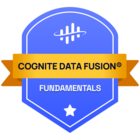Hello,
I am trying to understand the difference between Sequences and Events to see what is pertinent for me in a specific use case. For me, both of them allow saving a native CDF object along with a timestamp, enriched with other data. I feel like we can also achieve the same goal by making a data model with timestamps in one column and all the properties we are interested in, in other columns; though this approach would be harder because it would necessitate using pygen for input output.
In my company, we work on Industrial processing lines. At any given moment, a line is operating under a set of conditions, defined by a fixed set of set points, like ‘conveyor speed’ and various temperatures. Let us call the set points a, b, c etc. For set points a, b and c, we have measured values i, j and k.
To assess whether the machine is operating normally, we want to compare the aggregated measurements (i-j-k) taken during a period when the set points are a-b-c with a previous instance when the same set points occurred.
If ijk are very different from other ijk-s for the same abc, we can alert the operator that something isn’t right.
In other words, we want to classify ranges of time as ‘Batches’ to which we will add aggregations of all the relevant variables ijk as metadata. When any of the relevant variables abc changes, we will start writing a new ‘Batch’.
I see each Batch as either a CDF Event, or as a CDF Sequence or as a row in a Data Model.
I expect the number of batches to grow into the millions as we have multiple production lines that are connected.
From the Cognite Docs, I understand that Events can be assigned to multiple Assets. I don’t forsee a need for this functionality in my use case. I understand that both Events and Sequences can store extra data (abc and values of averages of ijk etc.). It is written in the docs that Sequences are indexed on row number; I think this is worse for me as I think indexing by time would be most pertinent here. Thus I am leaning towards Events or a Data Model.
Does anyone have experience of dealing with a similar use case? What would you use:
- Events?
- Sequences?
- A specific data model?
- A time series to mark changes in abc and on-the-fly calculations?
Any ideas about differences between the approaches I described will be appreciated.


 Check the
documentation
Check the
documentation Ask the
Community
Ask the
Community Take a look
at
Academy
Take a look
at
Academy Cognite
Status
Page
Cognite
Status
Page Contact
Cognite Support
Contact
Cognite Support


